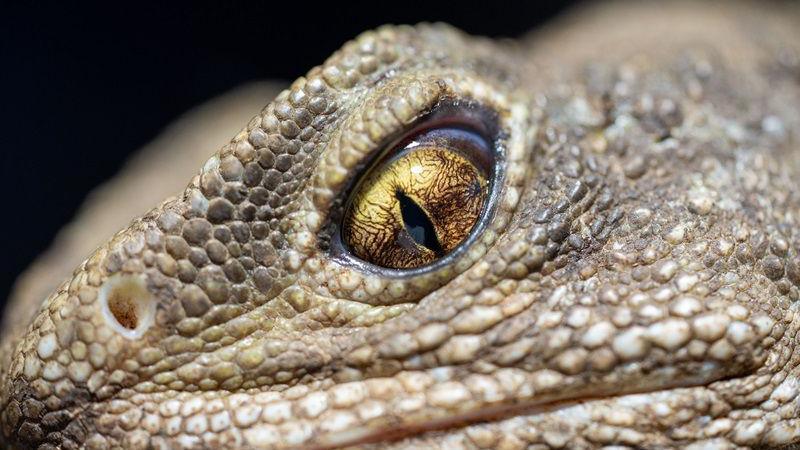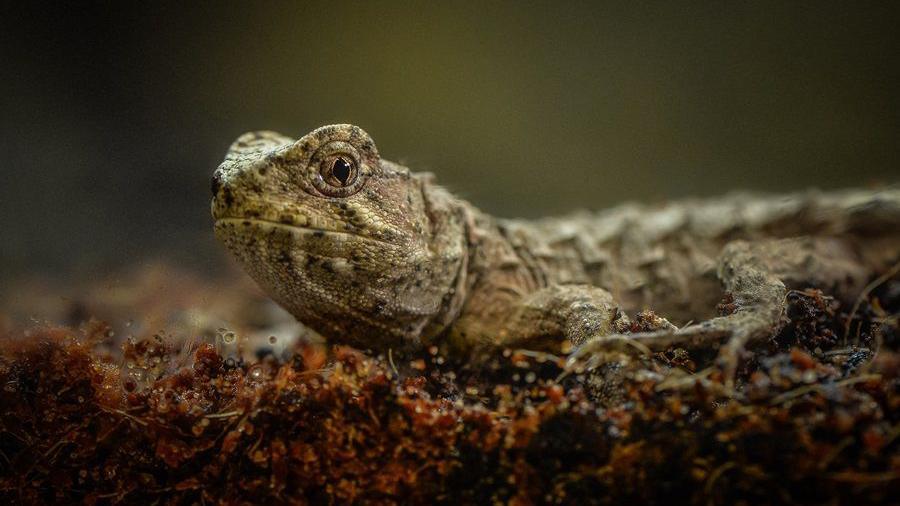Ancient three-eyed reptiles get new home at Chester Zoo

The new habitat at the zoo home to a group of six tuataras
- Published
A group of ancient three-eyed reptiles, from a species that dates back before the dinosaurs, have been welcomed at a zoo.
The reptiles, called tuataras, have moved into a new habitat at Chester Zoo - the only zoo in the UK to host the creatures, described as one of nature’s “greatest marvels".
Fossil records show they first appeared on Earth more than 200 million years ago, and about 50,000 are estimated to remain in the wild.
The new habitat will house a group of six tuataras to recreate the natural conditions of their native habitat for the zoo's conservation breeding programme.

Experts say one of the most curious body parts of the tuatara is a third eye on the top of its head
Experts say one of the most curious body parts of the tuatara is a third eye on the top of its head.
The eye has a retina, cornea, a lens and nerve endings, but it is not used for sight.
Instead, it helps to sense the intensity of sunlight and thermoregulate body temperature, circadian rhythm, navigation and hormone regulation.
Fossils suggest they died out everywhere around 70 million years ago – except for a few that survived on a number of small, isolated offshore islands in New Zealand.
Conservationists say the introduction of rats and other invasive species may have played a part in their demise, as well as a changing climate.
'Here well before humans'
A Chester Zoo spokesperson said experts at the zoo became the first to ever breed tuatara outside of their native home in 2016.
Karen Lambert, from Chester Zoo, said "these unique animals are crucial to our understanding of reptilian evolution".
She said: “These reptiles were here well before humans and it’s a real shame that they’re now so highly threatened after surviving all of this time.
"But the good news is that all the information we gathered from our breeding successes have been shared with the international conservation community, so that we can collectively work to protect their future on the planet".
Listen to the best of BBC Radio Merseyside on Sounds and follow BBC Merseyside on Facebook, external, X, external, and Instagram, external. You can also send story ideas to northwest.newsonline@bbc.co.uk, external